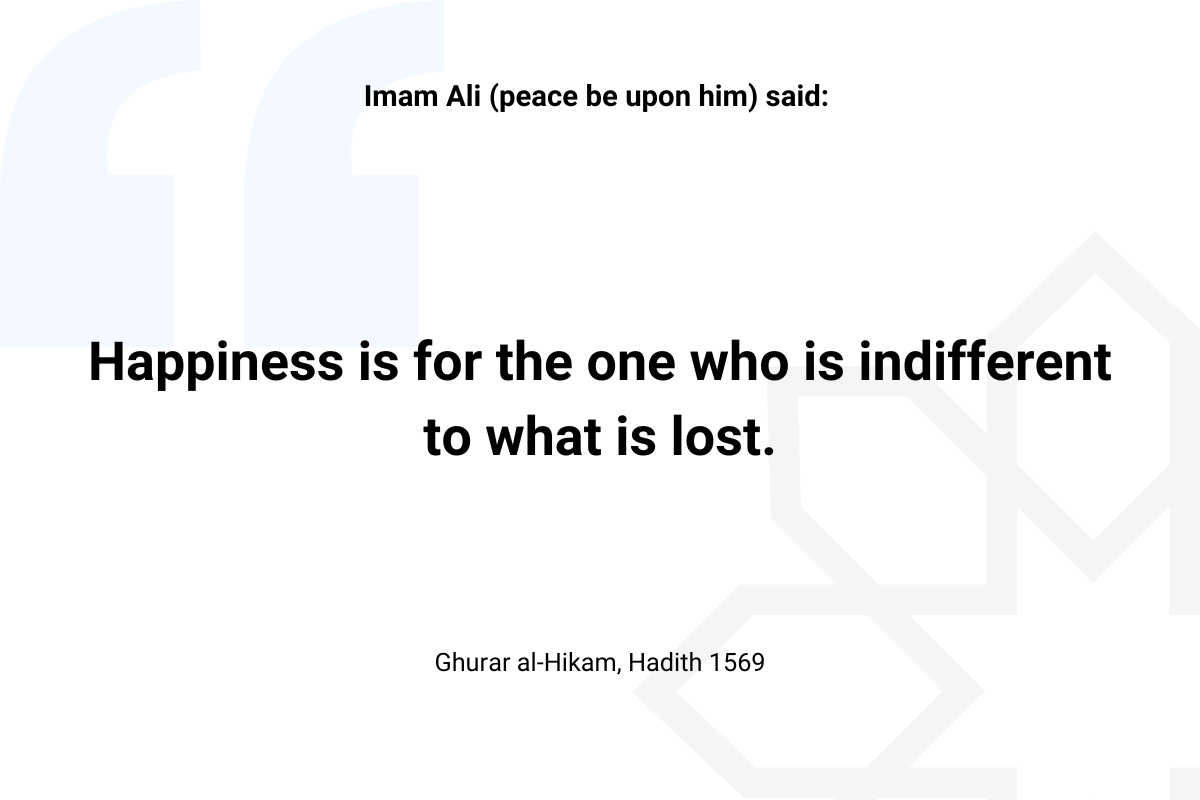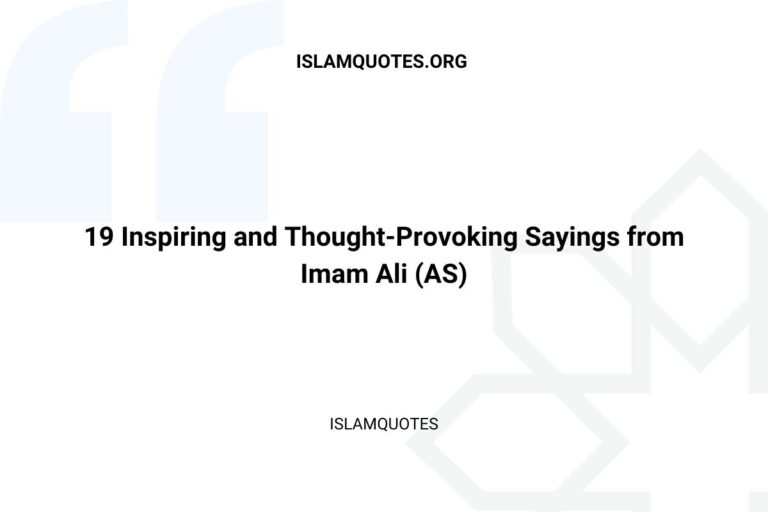Imam Ali (peace be upon him) said: “Happiness is for the one who is indifferent to what is lost.”
Source: Ghurar al-Hikam, Hadith 1569
In-Depth Interpretation of the Hadith
Introduction to Islamic Teachings on Happiness
Islamic teachings offer profound insights into the concept of happiness, emphasizing inner peace and contentment over materialistic pursuits. This hadith from Imam Ali (peace be upon him) highlights that true happiness stems from indifference to what is lost, encouraging Muslims to adopt a mindset of resilience and spiritual satisfaction.
The Concept of Indifference to Loss
Definition of Indifference
In this context, indifference does not imply apathy or carelessness. Rather, it refers to a state of inner peace where one does not overly lament or despair over losses. This teaching aligns with the broader Islamic principle of Tawakkul (trust in Allah), where a believer places complete trust in God’s plan and wisdom.
Psychological Benefits of Indifference
Modern psychological studies support the notion that resilience and acceptance of loss are crucial for mental well-being. Research indicates that individuals who can adapt to changes and cope with loss exhibit higher levels of psychological resilience and life satisfaction. This scientific perspective reinforces the wisdom imparted by Imam Ali (peace be upon him).
Ethical Dimensions of True Happiness
Contentment as an Ethical Virtue
In Islam, contentment (Rida) is regarded as a significant ethical virtue. Imam Ali’s (peace be upon him) advice underscores that true happiness is achieved by embracing contentment and avoiding excessive attachment to worldly possessions. This approach encourages Muslims to focus on spiritual growth and inner peace, leading to a more fulfilling life.
Scientific Insights on Resilience and Contentment
The Role of Acceptance in Mental Health
Scientific research highlights that acceptance of life’s challenges and losses is a key component of mental health. Studies show that individuals who practice acceptance experience lower levels of stress and anxiety, contributing to overall well-being. This aligns with the Islamic view that indifference to loss fosters a sense of peace and happiness.
Conclusion
Imam Ali’s (peace be upon him) hadith provides timeless wisdom on achieving true happiness through indifference to loss. By following this guidance, individuals can cultivate resilience, contentment, and inner peace. This teaching serves as a reminder that true happiness is found in spiritual fulfillment and trust in God’s plan.
By adhering to these principles, the content provides valuable insights into the teachings of Imam Ali (peace be upon him) while also being optimized for search engines. For more inspiring Islamic quotes, visit Islam Quotes.








